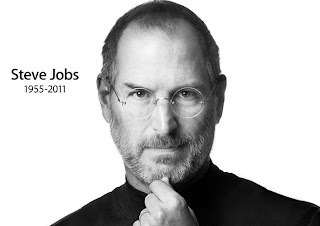Steve Jobs, Apple co-founder, died Wednesday night at the age of 56 after a long battle with ruthless pancreatic cancer, leaving behind a series of large-scale electronics. Throughout his career he has reinvented the concept of phone or music player and turned Apple into a giant worth 350 billion dollars.
With Apple's visionary leader's death, many are wondering what will be the fate of the company: it will continue the success or will they finally die immediately after "the man who changed the world"?
Considered as one of the best CEO in history, Steve Jobs handed his seat to Tim Cook in August and many analysts believe that Apple is, even then, very well positioned in perspective, writes The Huffington Post.
The death of Steve Jobs, however, leave behind some questions.
Will be Apple able to achieve success without Steve Jobs?
Jobs was known for attention to overseeing every step of product-development process, from conception to execution. Macintosch, iPod, iPhone and iPad all its quirky sensibility in terms of design. However, investors and gadgets users were used in last year with the idea of a Apple company without it's visionary leader.
What will happen to Apple shares?
Jobs's health was seen as a problem for investors since 2004, when he was diagnosed with cancer, but this did not prevent the company markets evolve.
The shares were little affected in August when Jobs announced that CEO chair quit, but less affected in session after the official announcement of the death of Steve Jobs.
What is Steve Jobs leaving behind him?
Jobs is considered one of the greatest CEO in history, along with Henry Ford and other leaders of giant U.S. companies. One of his greatest achievements was that he returned at the management of the company for the second time.
After the company he founded with Steve Wozniak in 1976 and gave the world the Apple II and Macintosh, has just been fired by the CEO of his choice, John Sculley. When Jobs returned to the company, in 1997, Apple's chances of survival were questionable, but he managed to radically transform the company, pointing a success.
Over time, Jobs bought Pixar in 1986, which was then a kind of digital animation technology experiment. The company became at one time a true giant, and when it was purchased by Disney in 2006, Jobs became the largest shareholder of the entertainment giant.
The few critics of Jobs claim that Maintosh was just a bunch of technologies borrowed and that besides this, Apple has given the world just a glossy phone and a improved music player. But many people believe that its impact on society and our culture has been monumental.
Apple will change with the coming of Cook?
Even if Jobs and Cook are known for their perfectionism characteristic Jobs's successor seems to be more flexible in working with people. If Jobs was renowned as a tough manager, able to give them out to people after a discussion in the elevator, Cook has more communication skills and knows how to reach a consensus.

No comments:
Post a Comment